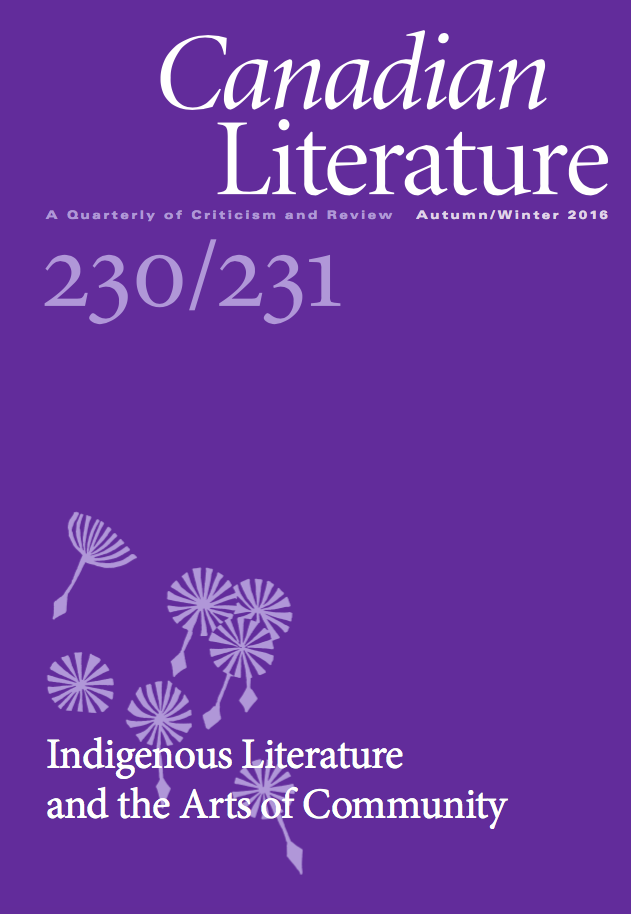Land, Memory, and the Struggle for Indigenous Rights: Lee Maracle’s “Goodbye Snauq”
DOI:
https://doi.org/10.14288/cl.v0i230-1.188379Abstract
This paper argues that the struggle for Indigenous rights is in transition and that new paradigms are arising. There is a growing sense that the well-established legal and political approaches of fighting for “recognition” have become stalled, and a politics of enactment as a community-based alternative is now emerging. Creative expressions of sovereignty, through dance, song, and other performative forms have emerged as a potent way to shift the discourse of rights away from a politics of recognition and towards one of enactment. In Lee Maracle’s “Goodbye Snauq,” a vision of an embodied, sensory-driven practice of sovereignty makes possible a more open-ended and critically informed conception of Indigenous rights in a time of change.


